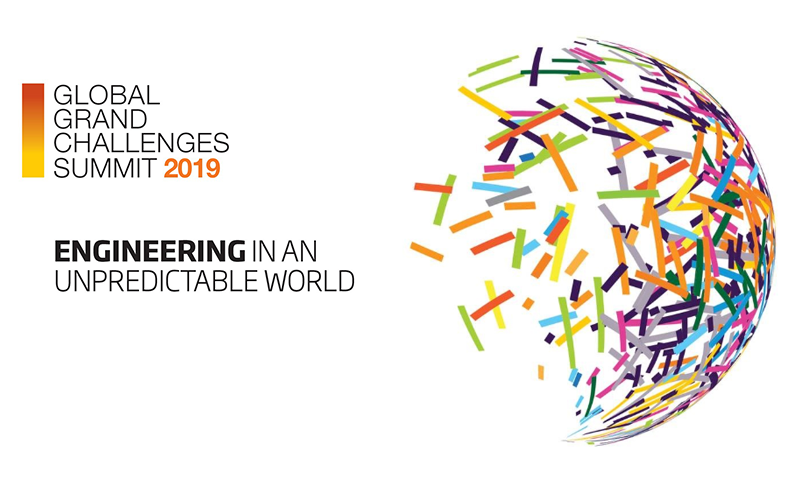Annelise Andersen
‘Cities occupy just 3% of the Earth’s land but account for 60 to 80% of energy consumption and at least 70% of carbon emissions’, Professor Henrietta Moore (Founder and Director of the Institute for Global Prosperity) tells us at the Global Grand Challenges Summit 2019 (GGCS2019), Southbank Centre, London.
Though startling to read back, I received this statement as more a call-to-action than a shock when I first heard it. By the introduction to the second day of GGCS2019, I had already learnt that each year our global population grows by around 82 million people, and that by 2050, around 70% of the world’s population will be living in cities. This told me that while cities might appear seemingly small on the global stage, they ultimately have powerful sprawl. Drawing the audience’s attention to this was more a reminder of the urgency to consider now how future cities can offer a good quality of life to its residents, than to overwhelm us out of acting at all.
Professor Moore continued the introduction to the session Future Cities: How do we create sustainable living places for 10 billion people? by encouraging us to channel our focus to energy. This was both in terms of the substance of the discussions to come and our contributions to them. Cities present huge challenges to us, after all, and the new forms of discovery, implementation and knowledge sharing needed to tackle them will take effort and invention. Lucky for us, we had the talent of engineer and jazz vocalist Dr Corina Kwami (Policy Advisor, Royal Academy of Engineering) to show us the way. A friend of the IGP, we originally worked with Corina in February 2019 for our conference “SDGeneration – A Citizen Science Movement”, where she performed a repertoire of jazz standards featuring communities and social justice. In the Queen Elizabeth Hall, Corina explained how creativity are the lifeblood of cities, and essential parts to its health.

Image credit: Royal Academy of Engineering
Following her lead, we were quickly enveloped in the sound of a nearly 1000 person-strong audience clapping and singing, including panellists Dr Jian Wang (Chairman of the Alibaba Group Technology Committee, founder of Alibaba Cloud), Monica von Schmalensee (Adviser to Sadiq Khan, Mayor of London; President, Swedish Council for Sustainable Cities), Professor Zhiqiang Wu (Vice President of Tongji University, Shanghai) and Peter Lacy (Senior Managing Director, Accenture Strategy, UK and Ireland). It’s hard to deny the good force of feeling that comes from being surrounded by a collective focussed towards the same goal.
Culture, collaboration and innovation appeared as recurrent themes in the conversations about cities that followed. Monica von Schmalensee proposed that culture was a key element of encouraging communities to reclaim the city centre. Dr Jian Wang argued that data should be considered as one of the most valuable resources to solve problems in the urban environment today. Through his work at Accenture, Peter Lacy described how collaboration could help change the need to move resources around the world, and Professor Zhiqiang Wu explained how innovations in real time data could lead to new modes of discovery and new forms of knowledge.
The second day of GGCS2019 purported to be a meeting of speakers from within the industry and beyond, who would explore sustainability and approaches to climate change, energy, cities and wellbeing – asking how we achieve the former and tackle the latter, with and for people. In reality, it was much more than that. “Living out what it lectured”, the day was a live demonstration of what people are able to achieve, and the problems they can surmount, when they come together. When presented with new and different ideas, and an open invitation to step outside the boundaries of the industries they know, people are capable of creating their own prosperity. Cities, the melting pots that they are, can be at the core of this.
You can watch the full session here
Top image credit: Mauro Mora - Crosswalk in long exposure
Fatemeh Sadeghi
30 May 2024 Feminists in the Global South have stepped out of the conventional territories of ‘women’s matters’ into more fund...